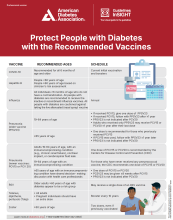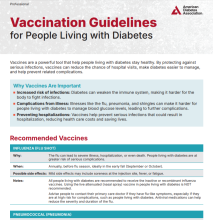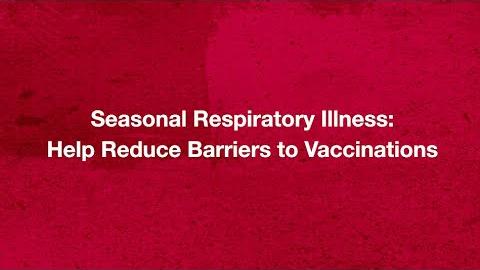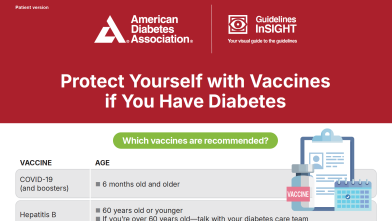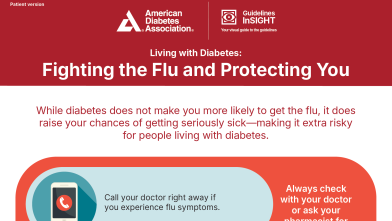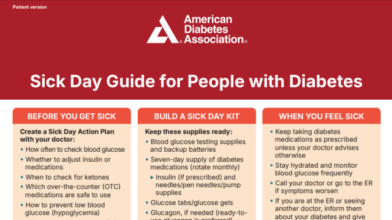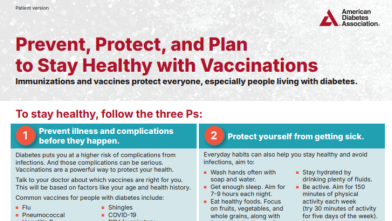Influenza
Having the flu can be dangerous for anyone. But it is extra risky for people with diabetes or other chronic health problems. People with diabetes have more instances of high blood glucose (blood sugar) than a person without diabetes. High blood glucose hinders the white blood cells’ ability to fight infections.
Beyond people living with diabetes, flu is also extra risky for people with heart disease, smokers and those with chronic lung disease, people who have an impaired immune system (like those going through chemotherapy, or who are organ donation recipients), very young children, and people living in very close quarters, such as college dorms, military barracks, or nursing homes.
In general, every person with diabetes needs a flu shot each year. Talk with the people you treat about having a flu shot. Flu shots do not give 100% protection, but they do make it less likely for you to catch the flu for about six months.
Seasonal Respiratory Illnesses
People with diabetes are vulnerable to adverse health outcomes from seasonal respiratory illnesses, especially those who are not vaccinated. The risk of RSV (commonly found in children) heightened in the wake of COVID-19, especially for older individuals and those with underlying health conditions.
According to the Centers for Disease Control and Prevention (CDC), up to 160,000 older adults are hospitalized due to RSV annually and up to 10,000 die as a result of the virus—with people with diabetes overrepresented in those numbers.
The American Diabetes Association’s Standards of Care in Diabetes (Standards of Care) provides updated recommendations for routine vaccinations for people with diabetes—including influenza, COVID-19, and RSV—to mitigate these risks. By using a person-centered team care approach, health care professionals can support the people they see to help increase their understanding of and access to recommended vaccinations.
